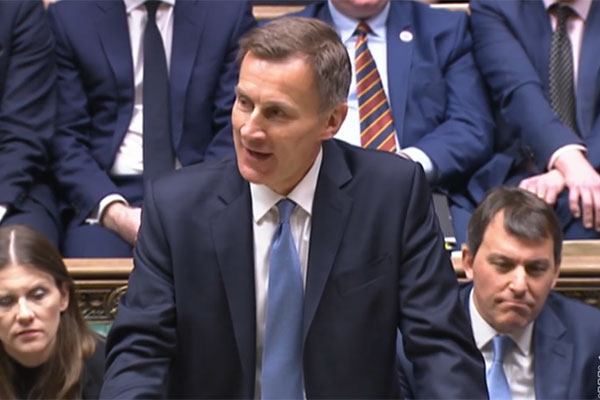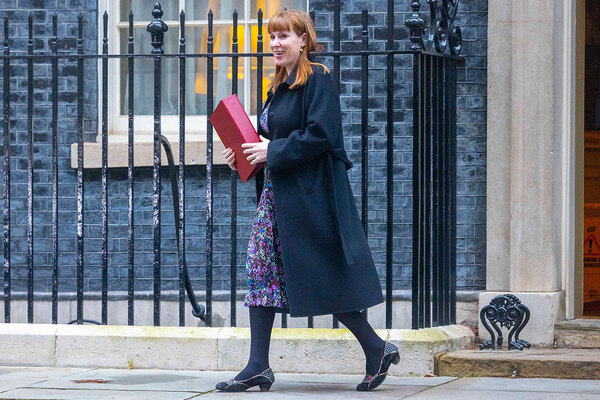Government department exploring new routes to fund retrofit, civil servant reveals
The government is exploring new routes to funding retrofit, including via the UK Infrastructure Bank, a director of the Social Housing Decarbonisation Fund (SHDF) has said.
The news comes soon after £778m was awarded through the latest wave of the fund.
Options being considered include a move away from the current competitions approach to awarding grant, such as the introduction of strategic partnerships. The government is also exploring additional sources of finance, through conversations with bodies including the UK Infrastructure Bank.
Awards for Wave 2.1 of the SHDF were announced earlier in March, with funding offered to 107 projects.
This followed Wave 1 of the fund, which awarded £179m to 69 projects, and an earlier ‘demonstrator’ phase, which allocated around £61m as an initial investment to for 18 projects to test innovative approaches to retrofitting at scale.
Speaking at the Retrofit Challenge Summit on 28 March, Caroline Withey, programme director of the SHDF at the Department for Energy Security and Net Zero, said that delivery of Wave 1 of the fund was “progressing very well”. She said that after allocating funding through the second wave of the SHDF, the department is looking at what comes next.
Ms Withey said: “We want to make sure that everybody can access the grant funding that will be available in the future. The government has committed £6bn for the next three years, beyond the period we’ve got now, across a range of retrofit projects.
“So, we want to understand actually how we can best move forward from what we’ve learned in the delivery so far. And that means not just in terms of the grant funding, but actually how we can support you to get the funding that you need to be able to help take this forward. So, we are starting to look at that.”
Ms Withey said the department has to take into account that several different organisation types are eligible to apply for SHDF grant funding. She said it needs to understand what will work across the board because one size may not fit all.
The government is weighing up the approaches to grant funding through the SHDF and is open to exploring what other options there are for allocating funding, she said.
Ms Withey said: “We want to understand actually what’s likely to be the best way forward. So, at the moment we’re just giving some thought to the approaches to grant funding. Up to this point on SHDF, we’d have run competitions. But we are open to exploring what other options there are for allocating funding out.
“It could be through a competition the way that SHDF has done, whether that’s through the minimum standards approach to the challenge funding model that the Home Upgrade Grant has performed or, there are other [routes] that we could explore, such as through strategic partners or through allocating the funding.
“There are a lot of opportunities out there that we want to explore. And over the period as we’re preparing to look ahead, we want to get the views from you as the sector because you’re the ones who will help us to work out what the actual possible is.”
UK Infrastructure Bank
Ms Withey said that the match-funding element to the SHDF is a “really important element” but the department wants to understand how it can go further, and said that providers cannot solely rely on government funding.
She said: “We can’t rely on government only to provide funding for this. What opportunities are out there for you to be able to source the funding to support your journey on retrofit, because you will be coming from different places with different challenges looking ahead.
“So, we are considering what levels of co-funding are appropriate. And again, one size does not fit all. We are looking at the availability of finance for social housing moving forward, engaging with the UK [Infrastructure] Bank and other bodies."
The UK Infrastructure Bank is a government-owned ‘policy bank’ launched in July 2021 after proposals to establish the institution were set out in a government policy paper in November 2020. Owned by HM Treasury, it oversees £22bn of infrastructure finance.
Social Housing understands the government is working with the UK Infrastructure Bank to explore possibilities for unlocking financing to support the further scale up of social housing retrofit and will announce any further updates in due course.
Ms Withey added: “We are also looking at what the barriers are that you face in securing funding moving forward. We have started some initial conversations with a few bodies just literally in the last week or two, starting to suss out the ground for this. So it’s very early days, but we would welcome your input.
“And we will be coming out and doing more wider engagement over the coming months as we start to look out, not just how we fund this, what the policies are and how we will deliver this, so please watch this space.”
Speaking on a separate panel at the conference, Conservative MP Philip Dunne, chair of the Environmental Audit Committee, warned social landlords that in future they cannot rely on government funding as doing so would be “totally unrealistic”.
He said the message has to be that this will become a “private sector-led funding arrangement”.
Mr Dunne said: “We’ve also encouraged the government to develop green bonds to use the skills of the City of London to mobilise private capital to get to work to help finance this, because there is no question that expecting the government of any contraction to pay for this effort is totally unrealistic.
“We’ve currently got close to 100 per cent of GDP in the form of government debt as a result of the pandemic and all the measures to keep households afloat during the last three years. We’ve added something like a trillion and a half to the public debt.
“So, anybody going away from this conference thinking the magic wand is out there in the form of government finance, forget it.
“The message has to be that this will become a private sector-led funding arrangement. There will clearly be some elements of a government priming to get measures moving, but that we have to come up with a more intelligent solution than just assuming the government will pay.”
Speaking alongside Ms Withey, Arun Poobalasingam, head of relationship management and business development at bond aggregator The Housing Finance Corporation, said that housing associations should monetise the benefits of retrofit works to investors.
He said: “I think it is up to associations to make the case to show the numbers, that actually what we’re doing is not just a cost that’s going to have no benefit. There are other benefits.
“We are long-term businesses; we own these assets for the rest of our lives. So, it’s worthwhile doing it and demonstrating that to the funding community will be very useful, because that will help them make the sector even more investable.”
Sign up for Social Housing’s weekly news bulletin
Social Housing’s weekly news bulletin delivers the latest news and insight across finance and funding, regulation and governance, policy and strategy, straight to your inbox. Meanwhile, news alerts bring you the biggest stories as they land.
Already have an account? Click here to manage your newsletters.
RELATED









